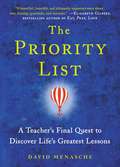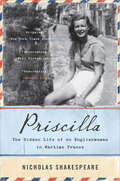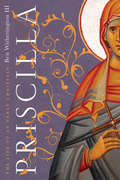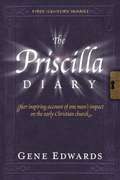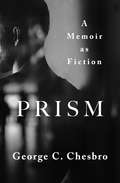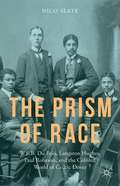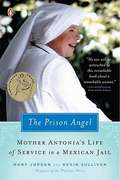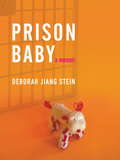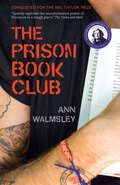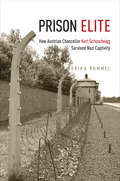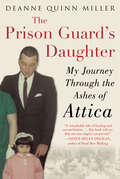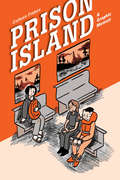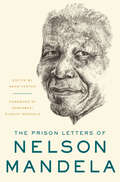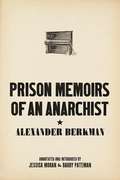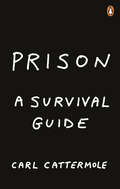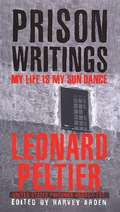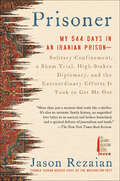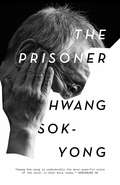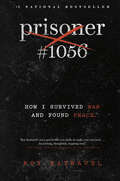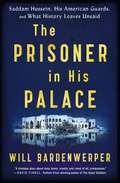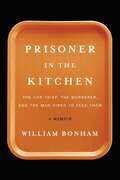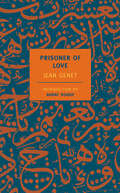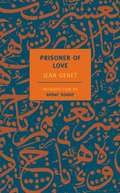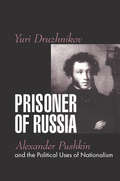- Table View
- List View
The Priority List
by David MenascheBased on a beloved teacher's most popular lesson, The Priority List is a bold, inspirational story of learning, love, and legacy that challenges us to ask: What truly matters in life? David Menasche lived for his work as a high school English teacher. His passion inspired his students, and between lessons on Shakespeare and sentence structure, he forged a unique bond with his kids, buoying them through personal struggles while sharing valuable life lessons. When a six-year battle with brain cancer ultimately stole David's vision, memory, mobility, and--most tragically of all--his ability to continue teaching, he was devastated by the thought that he would no longer have the chance to impact his students' lives each day. But teaching is something Menasche just couldn't quit. Undaunted by the difficult road ahead of him, he decided to end his treatments and make life his classroom. Cancer had robbed him of his past and would most certainly take his future; he wouldn't allow it to steal his present. He turned to Facebook with an audacious plan: a journey across America-- by bus, by train, by red-tipped cane--in hopes of seeing firsthand how his kids were faring in life. Had he made a difference? Within forty-eight hours of posting, former students in more than fifty cities replied with offers of support and shelter. Traveling more than eight thousand miles from Miami to New York, to America's heartland and San Francisco's Golden Gate, and visiting hundreds of his students, David's fearless journey explores the things we all want and need out of life--family, security, independence, love, adventure--and forces us to stop to consider our own Priority List.
Priscilla: The Hidden Life of an Englishwoman in Wartime France
by Nicholas ShakespeareWhen Nicholas Shakespeare stumbled across a box of documents belonging to his late aunt, Priscilla, he was completely unaware of where this discovery would take him and what he would learn about her hidden past. The glamorous, mysterious figure he remembered from his childhood was very different from the morally ambiguous young woman who emerged from the trove of love letters, photographs, and journals, surrounded by suitors and living the dangerous existence of a British woman in a country controlled by the enemy. He had heard rumors that Priscilla had fought in the Resistance, but the truth turned out to be far more complicated.As he investigated his aunt's life, dark secrets emerged, and Nicholas discovered the answers to the questions over which he'd been puzzling: What caused the breakdown of Priscilla's marriage to a French aristocrat? Why had she been interned in a prisoner-of-war camp, and how had she escaped? And who was the "Otto" with whom she was having a relationship as Paris was liberated?Piecing together fragments of one woman's remarkable and tragic life, Priscilla is at once a stunning story of detection, a loving portrait of a flawed woman trying to survive in terrible times, and a spellbinding slice of history.
Priscilla: The Life of an Early Christian
by Ben Witherington IIIWho was Priscilla? Readers of the Bible may know her as the wife of Aquila, Paul's coworker, or someone who explained baptism to Apollos. Biblical references to Priscilla spark questions: Why is she mentioned before her husband? Does the mention of her instruction of Apollos mean that women taught in the church? What is her story? Ben Witherington addresses these questions and more. In this work of historical fiction, Priscilla looks back on her long life and remembers the ways she has participated in the early church. Her journey has taken her to Ephesus, Corinth, and Rome, and she's partnered with Paul and others along the way. Priscilla's story makes the first-century world come alive and helps readers connect the events and correspondence in different New Testament books. Witherington combines biblical scholarship and winsome storytelling to give readers a vivid picture of an important New Testament woman.
The Priscilla Diary
by Gene EdwardsShipwrecks. Conflict. Imprisonment. This book continues the First-Century Diaries series. Here, in fictional diary form, is the story of Paul's journeys to establish the first-century church. Priscilla, a vibrant Roman follower of Jesus Christ and the wife of Aquila, narrates this dramatic account. Readers follow Paul as he faces the specter of Blastinius and legal heartaches in Jerusalem. A fascinating way to relive the struggles and the courage of the early church.
Prism: A Memoir as Fiction
by George C. ChesbroThe author of the Mongo Mysteries reveals the interior life of a troubled writer in this deeply personal autobiographical novel. At the age of fifty-eight, author Garth Fugue is adrift. For the last forty years he has poured his soul into twenty-three novels and countless short stories, all filled with murder and mayhem. By delving into the troubled minds of his characters, he has kept his own demons at bay. Now, Garth is at a crossroads. Despite his floundering literary career, he is attempting to write his magnum opus while simultaneously teaching at a children’s psychiatric hospital. As he decides what to write about, Garth must ultimately wrestle with his own beliefs about humanity, morality, and the meaning of it all. In this insightful novel, George C. Chesbro exposes a fictional writer’s tortured mind and, in doing so, divulges the struggles of the real, complicated man best known for penning quirky mysteries and pulpy thrillers. It is an intimate invitation not to be missed.
The Prism Of Race
by Nico SlateA scholar of race and a leader in the Afro-Asian solidarity movement, Cedric Dover embodied the 20th-century cosmopolitan redefinition of racial identity. Tracing Dover's evolution through his relationships with W. E. B. Du Bois, Langston Hughes, and Paul Robeson, this book tracks racial identity in the twentieth century.
The Prison Angel
by Kevin Sullivan Mary JordanThe winners of the 2003 Pulitzer Prize for international reporting tell the astonishing story of Mary Clarke. At the age of fifty, Clarke left her comfortable life in suburban Los Angeles to follow a spiritual calling to care for the prisoners in one of Mexico's most notorious jails. She actually moved into a cell to live among drug king pins and petty thieves. She has led many of them through profound spiritual transformations in which they turned away from their lives of crime, and has deeply touched the lives of all who have witnessed the depth of her compassion. Donning a nun's habit, she became Mother Antonia, renowned as "the prison angel," and has now organized a new community of sisters-the Servants of the Eleventh Hour—widows and divorced women seeking new meaning in their lives. "We had never heard a story like hers," Jordan and Sullivan write, "a story of such powerful goodness. " Born in Beverly Hills, Clarke was raised around the glamour of Hollywood and looked like a star herself, a beautiful blonde reminiscent of Grace Kelly. The choreographer Busby Berkeley spotted her at a restaurant and offered her a job, but Mary's dream was to be a happy wife and mother. She raised seven children, but her two unfulfilling marriages ended in divorce. Then in the late 1960s, in midlife, she began devoting herself to charity work, realizing she had an extraordinary talent for drumming up donations for the sick and poor. On one charity mission across the Mexican border to the drug-trafficking capitol of Tijuana, she visited La Mesa prison and experienced an intense feeling that she had found her true life's work. As she recalls, "I felt like I had come home. " Receiving the blessings of the Catholic Church for her mission, on March 19, 1977, at the age of fifty, she moved into a cell in La Mesa, sleeping on a bunk with female prisoners above and below her. Nearly twenty-eight years later she is still living in that cell, and the remarkable power of her spiritual counseling to the prisoners has become legendary. The story of both one woman's profound journey of discovery and growth and of the deep spiritual awakenings she has called forth in so many lost souls, The Prison Angel is an astonishing testament to the powers of personal transformation. .
Prison Baby
by Deborah Jiang SteinA deeply personal and inspiring memoir recounting one woman's struggles--beginning with her birth in prison--to find self-acceptance Prison Baby is a revised and substantially expanded version of Deborah Jiang Stein's self-published memoir, Even Tough Girls Wear Tutus. Even at twelve years old, Deborah, the adopted daughter of a progressive Jewish couple in Seattle, felt like an outsider. Her mixed Asian features set her apart from her white, well-intentioned parents who evaded questions about her past. But when she discovered a letter revealing the truth of her prison birth to a heroin-addicted mother--and that she spent the first year of life in prison--Deborah spiraled into emotional lockdown. For years she turned to drugs, violence, and crime as a way to cope with her grief. Ultimately, Deborah overcame the stigma, shame, and secrecy of her birth, and found peace by helping others--proving that redemption and acceptance are possible even from the darkest corners.From the Trade Paperback edition.
The Prison Book Club
by Ann WalmsleyA daring journalist goes behind bars to explore the redemptive power of books with bikers, bank robbers, and gunmen An attack in London left Ann Walmsley unable to walk alone down the street, and shook her belief in the fundamental goodness of people. A few years later, when a friend asked her to participate in a bold new venture in a men's medium security prison, Ann had to weigh her curiosity and desire to be of service against her anxiety and fear. But she signed on, and for eighteen months went to a remote building at Collins Bay, meeting a group of heavily tattooed book club members without the presence of guards or security cameras. There was no wine and cheese, no plush furnishings. But a book club on the inside proved to be a place to share ideas and regain a sense of humanity. For the men, the books were rare prized possessions, and the meetings were an oasis of safety and a respite from isolation in an otherwise hostile environment. Having been judged themselves, they were quick to make judgments about the books they read. As they discussed the obstacles the characters faced, they revealed glimpses of their own struggles that were devastating and comic. From The Grapes of Wrath to The Cellist of Sarajevo, Outliers to Infidel, the book discussions became a springboard for frank conversations about loss, anger, redemption, and loneliness. The Prison Book Club follows six of the book club members, who kept journals at Walmsley's request and participated in candid one-on-one conversations. Graham the biker, Frank the gunman, Ben and Dread the drug dealers, and the robber duo Gaston and Peter come to life as the author reconciles her knowledge of their crimes with the individuals themselves, and follows their lives as they leave prison. And woven throughout is the determined and compassionate Carol Finlay, working tirelessly to expand her program across Canada and into the United States. The books changed the men and the men changed Walmsley, allowing her to move beyond her position as a victim. Given the choice, she'd forsake the company of privileged friends and their comfortable book club to make the two-hour drive to Collins Bay.
Prison Elite: How Austrian Chancellor Kurt Schuschnigg Survived Nazi Captivity
by Erika RummelAfter the Anschluss (annexation) in 1938, the Nazis forced Austrian Chancellor Kurt Schuschnigg to resign and kept him imprisoned for seven years, until his rescue by the Allies in 1945. Schuschnigg’s privileged position within the concentration camp system allowed him to keep a diary and to write letters which were smuggled out to family members. Drawing on these records, Prison Elite paints a picture of a little-known aspect of concentration camp history: the life of a VIP prisoner. Schuschnigg, who was a devout Catholic, presents his memoirs as a "confession," expecting absolution for any political missteps and, more specifically, for his dictatorial regime in the 1930s. As Erika Rummel reveals in fascinating detail, his autobiographical writings are frequently unreliable. Prison Elite describes the strategies Schuschnigg used to survive his captivity emotionally and intellectually. Religion, memory of better days, friendship, books and music, and maintaining a sense of humour allowed him to cope. A comparison with the memoirs of fellow captives reveals these tactics to be universal. Studying Schuschnigg’s writing in the context of contemporary prison memoirs, Prison Elite provides unique insight into the life of a VIP prisoner.
The Prison Guard's Daughter: My Journey Through the Ashes of Attica
by Deanne Quinn MillerIn this moving memoir, a woman recounts her search for truth and justice regarding her father’s murder during America’s deadliest prison riot.Deanne Quinn Miller was five years old when her father—William “Billy” Quinn—was murdered in the first minutes of the Attica Prison Riot, the only corrections officer to die at the hands of inmates. But how did he die? Who were the killers? Those questions haunted Dee and wreaked havoc on her psyche for thirty years. Finally, when she joined the Forgotten Victims of Attica, she began to find answers. This began the process of bringing closure not only for herself but for the other victims’ families, the former prisoners she met, and all of those who perished on September 13, 1971—the day of the “retaking,” when New York State troopers and corrections officers at the Attica Correctional facility slaughtered twenty-nine rioting prisoners and ten hostages in a hail of gunfire.In The Prison Guard’s Daughter, Dee brings readers in on her lifelong mission for the truth and justice for the Attica survivors and the families of the men who lost their lives. But the real win was the journey that crossed racial and criminal-justice divides: befriending infamous Attica prisoner Frank “Big Black” Smith, meeting Richard Clark and other inmates who tried to carry her father to safety after his beating, and learning what life was like for all the people—prisoners and prison employees alike—inside Attica. As Miller lays bare the truth about her father’s death, the world inside Attica, and the state’s reckless raid and coverup, she conveys a narrative of compassionate humanity and a call for prison reform.Praise for The Prison Guard’s Daughter“A remarkable tale of healing and reconciliation, born from the tragedy of the nation’s deadliest prison uprising . . . . The Prison Guard’s Daughter reminds us that we can reach across divides—racial, social, economic—and learn lessons about others that inevitably teach us about ourselves. In a world in which the chasms among people seem to swell wider every day, this book tells us that our true angels can prevail, as long as we are ready to engage them.” —Sister Helen Prejean, author of Dead Man Walking: The Eyewitness Account of the Death Penalty That Sparked a National Debate“In the wake of the unimaginable trauma caused by the State of New York, there were the courageous few who had to endure even more pain to make sure that there was some reckoning with this horrific event, and some measure of justice for its victims. This is the extraordinarily beautiful story of one of the most courageous of those few, Dee Quinn Miller, who, quite literally, changed history.” —Heather Ann Thompson, Pulitzer Prize–winning author of Blood in the Water: The Attica Prison Uprising of 1971 and its Legacy“A personal, affecting, and eye-opening account of a pivotal tragedy on the seemingly endless road to prison reform.” —Booklist
The Prison Island: A Graphic Memoir
by Ms Colleen FrakesMcNeil Island in Washington state was the home of the last prison island in the US, accessible only by air or sea. It was also home to about fifty families, including Colleen Frake's. <P><P>Her parents--like nearly everyone else on the island--both worked in the prison, where her father was the prison's captain and her mother worked in security. Xeric and Ignatz Award-winning comics artist, Colleen Frakes, tells the story of a typical girl growing up in atypical circumstances in this engaging graphic memoir.
The Prison Letters of Nelson Mandela
by Nelson Mandela Sahm Venter Zamaswazi Dlamini-Mandela<P><P>An unforgettable portrait of one of the most inspiring historical figures of the twentieth century, published on the centenary of his birth. <P><P>Arrested in 1962 as South Africa’s apartheid regime intensified its brutal campaign against political opponents, forty-four-year-old lawyer and African National Congress activist Nelson Mandela had no idea that he would spend the next twenty-seven years in jail. <P><P>During his 10,052 days of incarceration, the future leader of South Africa wrote a multitude of letters to unyielding prison authorities, fellow activists, government officials, and, most memorably, to his courageous wife, Winnie, and his five children. <P><P>Now, 255 of these letters, many of which have never been published, provide exceptional insight into how Mandela maintained his inner spirits while living in almost complete isolation, and how he engaged with an outside world that became increasingly outraged by his plight. <P><P>Organized chronologically and divided by the four venues in which he was held as a sentenced prisoner, The Prison Letters of Nelson Mandela begins in Pretoria Local Prison, where Mandela was held following his 1962 trial. In 1964, Mandela was taken to Robben Island Prison, where a stark existence was lightened only by visits and letters from family. After eighteen years, Mandela was transferred to Pollsmoor Prison, a large complex outside of Cape Town with beds and better food, but where he and four of his comrades were confined to a rooftop cell, apart from the rest of the prison population. Finally, Mandela was taken to Victor Verster Prison in 1988, where he was held until his release on February 11, 1990. With accompanying facsimiles of some of his actual letters, this landmark volume reveals how Mandela, a lawyer by training, advocated for prisoners’ human rights. It reveals him to be a loving father, who wrote to his daughter, “I sometimes wish science could invent miracles and make my daughter get her missing birthday cards and have the pleasure of knowing that her Pa loves her,” aware that photos and letters he sent had simply disappeared. <P><P>More painful still are the letters written in 1969, when Mandela—forbidden from attending the funerals of his mother and his son Thembi—was reduced to consoling family members through correspondence. Yet, what emerges most powerfully is Mandela’s unfaltering optimism: “Honour belongs to those who never forsake the truth even when things seem dark & grim, who try over and & over again, who are never discouraged by insults, humiliation & even defeat.” <P><P>Whether providing unwavering support to his also-imprisoned wife or outlining a human-rights philosophy that resonates today, The Prison Letters of Nelson Mandela reveals the heroism of a man who refused to compromise his moral values in the face of extraordinary punishment. <P><P>Ultimately, these letters position Mandela as one of the most inspiring figures of the twentieth century.
Prison Memoirs of an Anarchist
by Alexander Berkman Barry Pateman Jessica Moran"A book of rare power and beauty, majestic in its structure, filled with the truth of imagination and the truth of actuality, emphatic in its declarations and noble in its reach."-Bayard Boyesen, Mother Earth. "No other book discusses so frankly the criminal ways of the closed prison society."- Kenneth RexrothIn 1892, Alexander Berkman tried to assassinate Henry Clay Frick for the latter's role in violently suppressing the Homestead Steel Strike. Berkman's attempt was unsuccessful. Berkman spent the next fourteen years in Pennsylvania's Western Penitentiary. Upon release, he wrote what was to become a classic of prison literature, and a profound testament to human courage in the face of oppression.This new edition of his account of those years is introduced and fully annotated by Barry Pateman and Jessica Moran, both former associate editors of the Emma Goldman Papers at the University of California Berkeley. Their efforts make this the definitive version of Berkman's tale of his transformation within prison, his growing sympathy for those he'd considered social parasites, and the intimate relationships he developed with them. Also includes never-before-published facsimile reprints and transcriptions of the diary Berkman kept while he wrote this book, conveying the difficulties he had reliving his experiences.Alexander Berkman (1870-1936) was a leading writer and militant in the anarchist movement and author of the classic primer What is Anarchism?Barry Pateman was associate editor of Emma Goldman: A Documentary History, and editor of Chomsky on Anarchism. He is a historian and member of the Kate Sharpley Library collective.Jessica Moran, was an assistant editor of Emma Goldman: A Documentary History. She is a member of the Kate Sharpley Library collective and is an archivist currently living and working in New Zealand.
The Prison of My Mind
by Barbara Field BenzigerIn this memoir of psychiatric illness, the author describes two hospitalizations and her eventual restoration to mental health. In the first hospital she receives indifferent and even abusive treatment. In the second she has the good fortune to be assigned to a wise and compassionate psychiatrist who helps her explore her inner conflicts and find peace. Benziger writes eloquently of the terror of severe panic attacks when the world seems to be collapsing around her.
Prison: A Survival Guide
by Carl CattermoleThe cult guide to UK prisons by Carl Cattermole – now fully updated and featuring contributions from female and LGBTQI prisoners, as well as from family on the outside.Contains: Blood – but not as much as you might imagineSweat – and the prisons no longer provide soapTears – because prison has created a mental health crisisHumanity – and how to stop the institution destroying itFeaturing contributors Sarah Jake Baker, Jon Gulliver, Darcey Hartley, Julia Howard, Elliot Murawski and Lisa Selby.‘Essential reading’ Will Self‘We’re in the justice dark ages and Cattermole’s great book switches on the lights’Dr Theo Kindynis, Lecturer in Criminology Goldsmiths, University of London‘It has the potential to change a lot of people’s lives for the better’Daniel Godden, Partner at Berkeley Square Solicitors’
Prison Writings: My Life Is My Sun Dance
by Leonard Peltier Harvey ArdenFrom the Book Jacket: "A deeply moving and very disturbing story of a gross miscarriage of justice and an eloquent cri de coeur of Native Americans for redress, and to be regarded as human beings with inalienable rights guaranteed under the United States Constitution, like any other citizens. We pray it does not fall on deaf ears. America owes it to herself." (Archbishop Desmond M. Tutu, Nobel Peace Laureate) "It would be inadequate to describe Leonard Peltier's Prison Writings as a classic of prison literature, although it is that. It is also a cry for help, an accusation against monstrous injustice, a beautiful expression of a man's soul, demanding release." (Howard Zinn, author of A People's History of the United States) "Listen to this fresh, brave voice, then inform yourself about the shameful case of Leonard Peltier." (Peter Matthiessen, author of In the Spirit of Crazy Horse) "This book takes the reader on an emotional and spiritual journey as Leonard Peltier's surprisingly hopeful reflections make the terrible injustice of his imprisonment for 24 years even more difficult to accept. Peltier's important journal details his trial and conviction which was based in part on admittedly false testimony and evidence so inconclusive that reasonable people everywhere have concluded that he should be granted clemency." (Wilma Mankiller, former chief of the Cherokee Nation, and author of Mankiller) "Leonard Peltier's words reveal a wise man who has become freer than his captors, despite his false imprisonment for a crime he did not commit. His thoughts here remind us of our true mission as Indian people, as human beings here on this humble, beautiful planet. These thoughts cannot be captured or locked behind bars, or destroyed by gunfire. They fly free." (Joy Harjo, Muskoke poet and musician, author of The Woman Who Fell From the Sky) "If you care about justice, read this brave book. If you care about the perpetuation of the white man's justice against the Native American, you must know the Leonard Peltier story." (Gerry Spence, author of Give Me Liberty!) Harvey Arden is the author and co-author of several books, including Wisdomkeepers and Travels in a Stone Canoe (both with Steve Wall) and Noble Red Man. He lives in Washington, DC. Other books by Harvey Arden are available from Bookshare.
Prisoner: My 544 Days in an Iranian Prison--Solitary Confinement, a Sham Trial, High-Stakes Diplomacy, and the Extraordinary Efforts It Took to Get Me Out
by Jason RezaianThe Inspiration for the New Podcast Featuring Jason Rezaian. “544 Days” is a Spotify original podcast, produced by Gimlet, Crooked Media and A24.The dramatic memoir of the journalist who was held hostage in a high-security prison in Tehran for eighteen months and whose release—which almost didn’t happen—became a part of the Iran nuclear dealIn July 2014, Washington Post Tehran bureau chief Jason Rezaian was arrested by Iranian police, accused of spying for America. The charges were absurd. Rezaian’s reporting was a mix of human interest stories and political analysis. He had even served as a guide for Anthony Bourdain’s Parts Unknown. Initially, Rezaian thought the whole thing was a terrible misunderstanding, but soon realized that it was much more dire as it became an eighteen-month prison stint with impossibly high diplomatic stakes. While in prison, Rezaian had tireless advocates working on his behalf. His brother lobbied political heavyweights including John Kerry and Barack Obama and started a social media campaign—#FreeJason—while Jason’s wife navigated the red tape of the Iranian security apparatus, all while the courts used Rezaian as a bargaining chip in negotiations for the Iran nuclear deal.In Prisoner, Rezaian writes of his exhausting interrogations and farcical trial. He also reflects on his idyllic childhood in Northern California and his bond with his Iranian father, a rug merchant; how his teacher Christopher Hitchens inspired him to pursue journalism; and his life-changing decision to move to Tehran, where his career took off and he met his wife. Written with wit, humor, and grace, Prisoner brings to life a fascinating, maddening culture in all its complexity.“An important story. Harrowing, and suspenseful, yes—but it’s also a deep dive into a complex and egregiously misunderstood country with two very different faces. There is no better time to know more about Iran—and Jason Rezaian has seen both of those faces.” — Anthony Bourdain“Jason paid a deep price in defense of journalism and his story proves that not everyone who defends freedom carries a gun, some carry a pen.” —John F. Kerry, 68th Secretary of State
The Prisoner: A Memoir
by Hwang Sok-yongA sweeping account of imprisonment--in time, in language, and in a divided country--from Korea's most acclaimed novelistIn 1993, writer and democracy activist Hwang Sok-yong was sentenced to five years in the Seoul Detention Center upon his return to South Korea from North Korea, the country he had fled with his family as a child at the start of the Korean War. Already a dissident writer well-known for his part in the democracy movement of the 1980s, Hwang's imprisonment forced him to consider the many prisons to which he was subject--of thought, of writing, of Cold War nations, of the heart.In this capacious memoir, Hwang moves between his imprisonment and his life--as a boy in Pyongyang, as a young activist protesting South Korea's military dictatorships, as a soldier in the Vietnam War, as a dissident writer first traveling abroad--and in so doing, narrates the dramatic revolutions and transformations of one life and of Korean society during the twentieth century.
Prisoner #1056: How I Survived War and Found Peace
by Roy RatnavelAn incredible immigrant story from a prominent Canadian Tamil who fled torture and imprisonment, arrived in Canada with $50 in his pocket, then rose from the mailroom to the executive suite of the country&’s largest independent asset management company.Roy Ratnavel&’s astonishing journey began at age seventeen, when he was seized by government soldiers and interned in a notorious prison camp for no reason other than being born a Tamil. He saw friends die, and was tortured for a few months—until an unlikely encounter allowed him to send a message beyond the prison walls, which led to his release.Seeing nothing but more danger in his son&’s future, Ratnavel&’s father sought refuge for his son in Canada, far from the ethnic violence that was consuming Sri Lanka. When the consular immigration officer asked for proof that the boy&’s life was at risk in his homeland, Ratnavel simply lifted his shirt to show the man his unhealed scars. It wasn&’t long before he was on a plane. His father was shot and killed three days later.To repay the debt he owed to his hero of a father, Ratnavel was determined to find the bright future that had been envisioned for him. He went to night school, worked three jobs at a time, and lived in a tiny space with seven housemates. Ratnavel persevered, and he hustled. He accepted no charity, even from relatives, but he made the most of the opportunities set in his path, the mentorship offered by those Canadians who recognized his potential, and by his new homeland, a country shaped by openness, tolerance, and a commitment to merit.Prisoner #1056 is not only a moving immigrant success story and a searing account of surviving unimaginable injustice and trauma—it is an urgent warning that the dark forces of populism that tore apart the once-prosperous island of Sri Lanka can do their ugly work in Western societies too. Passionate, raw, thoughtful, and far-seeing, Prisoner #1056 makes the case that our destiny is in our own hands.
The Prisoner in His Palace: Saddam Hussein, His American Guards, and What History Leaves Unsaid
by Will BardenwerperIn the haunting tradition of In Cold Blood and The Executioner’s Song, this remarkably insightful and surprisingly intimate portrait of Saddam Hussein lifts away the top layer of a dictator’s evil and finds complexity beneath as it invites us to take a journey with twelve young American soldiers in the summer of 2006. Trained to aggressively confront the enemy in combat, the men learn, shortly after being deployed to Iraq, that fate has assigned them a different role. It becomes their job to guard the country’s notorious leader in the months leading to his execution.Living alongside, and caring for, their “high value detainee” in a former palace dubbed The Rock and regularly transporting him to his raucous trial, many of the men begin questioning some of their most basic assumptions—about the judicial process, Saddam’s character, and the morality of modern war. Although the young soldiers’ increasingly intimate conversations with the once-feared dictator never lead them to doubt his responsibility for unspeakable crimes, the men do discover surprising new layers to his psyche that run counter to the media’s portrayal of him. Woven from first-hand accounts provided by many of the American guards, government officials, interrogators, scholars, spies, lawyers, family members, and victims, The Prisoner in His Palace shows two Saddams coexisting in one person: the defiant tyrant who uses torture and murder as tools, and a shrewd but contemplative prisoner who exhibits surprising affection, dignity, and courage in the face of looming death. In this artfully constructed narrative, Saddam, the “man without a conscience,” gets many of those around him to examine theirs. Wonderfully thought-provoking, The Prisoner in His Palace reveals what it is like to discover in one’s ruthless enemy a man, and then deliver him to the gallows.
Prisoner in the Kitchen: The Car Thief, the Murderer, and the Man Hired to Feed Them
by William BonhamWinner of Simon & Schuster's memoir contest in conjunction with AARP and the Huffington Post, the memoir of a man's coming-of-age as a civilian cook in a maximum-security prison.In 1973, recent Montana transplant William Bonham desperately needs a job. Hoping to take advantage of his background working in restaurants and diners, he finally comes across a listing for a position offering great money and benefits--at Montana State Prison in Deer Lodge. He takes it. As food service supervisor in the kitchen of the maximum-security prison, Bonham oversees a kitchen crew of convicts that prepares and serves each meal. Among his staff are Earl, a homely baker; Aldrich, a timid young dishwasher; Smoky Boy, the prison's most feared and respected convict; Mackey, who claims to have cooked at Seattle's Olympic Hotel in his pre-incarceration life; and Reed, a cook whose calm, witty demeanor wins over Bonham. Over the next year, Bonham comes to care for his crew. Although he knows that these men have committed unforgiveable crimes, Bonham forms a camaraderie with them that borders on friendship--until a late-night incident calls his judgment into question. Told with humor and empathy, A Prisoner in the Kitchen is the redemptive tale of Bonham's transformation from a bright-eyed optimist who sees the good in everyone to a man who understands and revels in the complexities of human nature.
Prisoner of Love
by Jean GenetStarting in 1970, Jean Genet—petty thief, prostitute, modernist master—spent two years in the Palestinian refugee camps in Jordan. Always an outcast himself, Genet was drawn to this displaced people, an attraction that was to prove as complicated for him as it was enduring. Prisoner of Love, written some ten years later, when many of the men Genet had known had been killed, and he himself was dying, is a beautifully observed description of that time and those men as well as a reaffirmation of the author's commitment not only to the Palestinian revolution but to rebellion itself. For Genet's most overtly political book is also his most personal—the last step in the unrepentantly sacrilegious pilgrimage first recorded in The Thief's Journal, and a searching meditation, packed with visions, ruses, and contradictions, on such life-and-death issues as the politics of the image and the seductive and treacherous character of identity. Genet's final masterpiece is a lyrical and philosophical voyage to the bloody intersection of oppression, terror, and desire at the heart of the contemporary world.
Prisoner of Love
by Jean Genet Barbara Bray Ahdaf SoueifStarting in 1970, Jean Genet--petty thief, prostitute, modernist master--spent two years in the Palestinian refugee camps in Jordan. Always an outcast himself, Genet was drawn to this displaced people, an attraction that was to prove as complicated for him as it was enduring. Prisoner of Love, written some ten years later, when many of the men Genet had known had been killed, and he himself was dying, is a beautifully observed description of that time and those men as well as a reaffirmation of the author's commitment not only to the Palestinian revolution but to rebellion itself. For Genet's most overtly political book is also his most personal--the last step in the unrepentantly sacrilegious pilgrimage first recorded in The Thief's Journal, and a searching meditation, packed with visions, ruses, and contradictions, on such life-and-death issues as the politics of the image and the seductive and treacherous character of identity. Genet's final masterpiece is a lyrical and philosophical voyage to the bloody intersection of oppression, terror, and desire at the heart of the contemporary world.
Prisoner of Russia: Alexander Pushkin and the Political Uses of Nationalism
by Yuri DruzhnikovAs the central figure in Russian literature, Alexander Pushkin (1799u1837) has been claimed by nearly every political faction, right and left, in Russian cultural politics over the past two centuries, culminating in his official canonization under the Soviet regime. In Prisoner of Russia, Yuri Druzhnikov analyzes the distortions and misrepresentations of Pushkin's cultural appropriation by focusing on Pushkin's attempts at emigration and his attitudes toward Russia and Western Europe.Druzhnikov's semi-biographical narrative concentrates on Pushkin's attempts to leave Russia after his graduation from the Lyceum, through his period of exile, until his early death in a duel in 1837. The matter of emigration from Russia was a politically charged issue well before 1917; witness the hostile reception of all of Turgenev's novels from Fathers and Sons on. The emigrU artist's cultural context is often used to assess his authenticity and stature as seen in the Western examples of Henry James, T.S. Eliot, or James Joyce. Druzhnikov sharply criticizes the omnipresent and reductive tendency in Russia (and the West) to define Russian cultural figures in terms of absolute essences and ideologies and to ignore the ambivalences that in fact help to define a writer's singularity. In the larger view, he argues, it is these that explain the variety and complexity of Russian culture.Druzhnikov's multidisciplinary approach combines literary and political history, with critical commentary arranged in chronological sequence. His interpretive apparatus ranges widely through nineteenth- and twentieth-century history, and provides the necessary intellectual context for nonspecialist readers. He also avoids the massive accumulation of trivial detail characteristic of so much Pushkinology. This accessible, valuable exercise in cultural history will be of interest to Slavic scholars and students, cultural historians, and general readers interested in Russian literature and culture.
